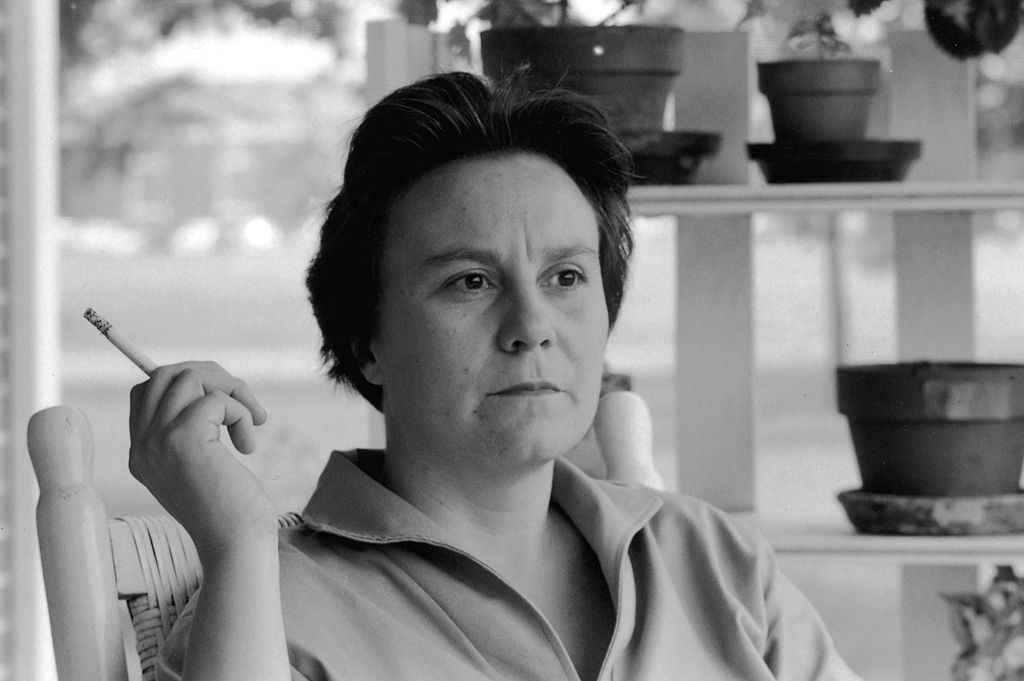The unexpected announcement that 88-year-old Harper Lee will be releasing her first book since To Kill a Mockingbird (and just second overall) was met with equal parts surprise and suspicion. “It’s hard to believe that Lee herself is behind any of this, or even that she endorses it,” the Daily Beast’s Malcolm Jones wrote; the Atlantic had its own hot take, titled “Harper Lee: The Sadness of a Sequel.” But, despite the cloud of confusion, it seems nobody is asking what might be the most important question of all: What if the book’s no good?
What would it mean to her legacy if Lee’s forthcoming book, Go Set a Watchman, failed to live up to her debut? Is that even remotely possible? Lee’s editor, Hugh Van Dusen, speculated that To Kill a Mockingbird still sells about 800,000 copies worldwide per year. It’s tough to imagine a new novel—and a distinctly literary one at that—performing that well.
One factor that undoubtedly shapes perception: sales. Not exactly a great figure right now in the book world. In 2012, Publishing Perspectives reported a nine percent drop in U.S. book sales from the year prior. While a 2013 Nielson report showed that U.S. book sales haven’t declined further, they also haven’t improved.
With a sagging industry, it’s unlikely that Go Set a Watchman will ever have the same sort of cultural significance that To Kill a Mockingbird did.
Book sales lead to popularity, and popularity, it seems, fuels cultural impact. A 2008 study by Princeton professor Matthew Salganik, which focused on the contributing factors to a musician’s popularity, found that, basically, art is a crapshoot. “[Most] songs experienced self-fulfilling prophecies, in which perceived—but initially false—popularity became real over time,” Salganik wrote in his report. “We also found, however, that the inversion was not self-fulfilling for the market as a whole, in part because the very best songs recovered their popularity in the long run.” In other words, people want to like whatever their peers do.
This is by no means meant to discredit To Kill a Mockingbird. Rather, it’s simply to say that a work of fiction’s lasting legacy is at least partially subject to sales. (Remember Dave Van Ronk? Weird, because some people in the 1960s thought he was better than Bob Dylan.) With a sagging industry, it’s unlikely that Go Set a Watchman will ever have the same sort of cultural significance that To Kill a Mockingbird did.

It probably goes without saying that old books can obviously impact new writers. In that sense, To Kill a Mockingbird really stands out. Using Google’s Ngram Viewer, which plots the frequency of use of any word or phrase—in this case, a book title—over time, it’s easy to see just how significant To Kill a Mockingbird has been. For comparison’s sake, look at four of the other well-known literary classics from that decade:
It’s just one measurement, sure, but the results are clear: To Kill a Mockingbird has displayed extraordinary staying power in our culture.
A 2012 study, which mathematically assesses the stylistic influence of authors over future literature, “gives quantitative support to the notion of a literary ‘style of a time,’” according to the researchers, “with a strong trend toward increasingly contemporaneous stylistic influence.” Put simply: A good writer can change not just his or her peers’ writing style, but also that of future generations. Looking at this empirical evidence next to the Google Ngram chart, Harper Lee’s significance is not exactly a tough sell.

Like J.D. Salinger, so much of Harper Lee’s public personality is tied to her reclusiveness, maybe more so, since she’d always adamantly refused to publish anything after Mockingbird. (Upon refusing a speaking engagement, Lee once famously said, “Well, it’s better to be silent than be a fool.”) Might a new book affect this Legend of Harper?
Probably not, says Gary Alan Fine, a sociology professor at Northwestern University. “What did Leo Tolstoy do besides War and Peace?” Fine asks. “We don’t remember Tolstoy as the guy who wrote whatever [else].”
Fine has written extensively on collective memory and how it pertains to authors’ legacies. In his analysis of Moby Dick writer Herman Melville’s legacy, Fine reasons that there are larger socio-political issues at play when a society evaluates its authors. In the case of Melville—who was scorned later in his career, but is now celebrated as one of the all-time great American authors—people had to move past their problems with Melville the man (some didn’t like his writing; others didn’t like him) to accept Melville the writer. Literary politics, Fine argues, were at play in Melville’s demise.

But that could be good news for Harper Lee’s legacy.
To Kill a Mockingbird was released at the height of the Civil Rights era. While the plot’s treatment of African Americans remains a controversial issue, the book did do quite a bit to combat prejudice. Fine offers up an interesting thought experiment: “Suppose Harper Lee didn’t publish To Kill a Mockingbird in 1960, and it sat around and was first published in 1990. What would its impact have been?” Lee has become part of a larger discussion on civil rights and inequality in the 1960s; she’s become a cultural icon, and that’s a hard label to shake.
Maybe that’s the answer, then: that the success of To Kill a Mockingbird is both a blessing and a curse to Harper Lee’s legacy. A blessing in that, should her new book fall short of expectations, people will still remember her for that debut; a curse, because, with declining book sales—and a correlational relative lack of influence—it’s unlikely future generations could possibly hold the same reverence for Go Set a Watchman.




